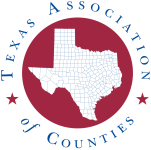News Article | March 28, 2025
AG Opinions and Requests
TAC has highlighted recent Attorney General Opinions and Requests for Opinions of interest to counties. Summaries below are republished directly from opinion letters issued by the Office of the Attorney General without substantive editing.
Attorney General Opinions
KP-0485: Asks questions relating to the rights of a mentally incapacitated person who is a ward of a guardianship to represent themself in civil or criminal matters (RQ-0545-KP). The opinion provides a court with probate jurisdiction may establish a guardianship for an incapacitated person who is substantially unable to perform certain essential functions because of a mental condition. The court may appoint a guardian with either full or limited authority over the ward’s person, the ward’s estate, or the ward’s person and estate. The court order appointing a guardian provides evidence of the scope of the guardian’s powers and duties. A ward retains all rights and powers not specifically granted to a guardian by the appointing court. The Sixth Amendment to the United States Constitution provides criminal defendants a limited right to self-representation and its assertion requires waiver of the right to assistance of counsel. While a court with probate jurisdiction must determine whether a ward is mentally incapacitated, a ward seeking to proceed pro se may assert the right to self-representation in the trial court conducting criminal proceedings. The trial court then determines whether the ward is competent to conduct trial proceedings on his own behalf and whether waiver of the right to counsel is voluntary, knowing, and intelligent. Guardians may be authorized by a court with probate jurisdiction to hire counsel to defend a ward in civil litigation because assertion of the right to defend oneself in that context does not require the waiver of other rights. A court with probate jurisdiction may not authorize non attorney guardians to proceed pro se on a ward’s behalf. A non-attorney guardian that represents a ward in litigation could be found to have engaged in the unauthorized practice of law. An attorney that assists non-attorney guardians in performing an activity that constitutes the unauthorized practice of law violates the Texas Disciplinary Rules of Professional Conduct.
KP-0486: Asks whether, using certain grant funds, a county’s hiring of an administrative assistant to work in a dual role for the county judge and the prosecuting attorney constitutes a conflict of interest (RQ-0548-KP). The opinion finds neither the dual-officeholding prohibition in Article XVI, subsection 40(a) of the Texas Constitution nor the common-law incompatibility doctrine prohibits one person from working in a “dual role” as an administrative assistant for a county judge and a prosecuting attorney. The question whether the dual employment results in a violation of the Disciplinary Rules of Professional Conduct for attorneys, the Code of Judicial Conduct for judges, Due Process, or a local policy or regulation requires the resolution of fact questions, which is beyond the scope of an Attorney General opinion.
KP-0487: Questions whether a county commissioner may simultaneously serve as chief of the local fire department (RQ-0551-KP). The opinion provides Article XVI, subsection 40(a) of the Texas Constitution does not bar a person from simultaneously serving as a county commissioner and a fire chief of a volunteer fire department in the same county. A court would likely conclude the common-law doctrine of incompatibility also does not bar such dual service.
KP-0489: Questions the validity of district court orders directing state agencies to amend a person’s biological “sex” designation on state identification documents (RQ-0563-KP). The opinion provides the “judicial power” endowed to district courts does not countenance ex parte orders directing state agencies to amend a person’s biological sex on driver’s licenses or birth certificates. The underlying proceedings are coram non judice, and the resulting orders are void. State agencies must immediately correct any unlawfully altered driver’s licenses or birth certificates that were changed pursuant to such orders.
Requests for an Attorney General Opinion
RQ-0584-KP: Bexar County Criminal District Attorney. Questions the legality of a county officer’s use of an automated traffic enforcement system to issue speeding citations without express statutory authority in accordance with Section 402.042.043 of the Texas Government Code.
RQ-0585-KP: Montgomery County Attorney. Asks questions related to what is considered a quorum of members of a home rule city council when the mayor votes in limited circumstances under the Texas Open Meetings Act.
RQ-0586-KP: Zavala County Attorney. Asks whether a commissioners court can rescind and readopt a different county budget after the annual budget is approved.
RQ-0587-KP: House Committee on Intergovernmental Affairs. Questions the interpretation of Texas Local Government Code, Chapter 394, as applied to a housing finance corporation’s residential development outside local government boundary.
RQ-0588-KP: Sterling County Attorney. Questions county authority and potential liability relating to requirements for road and/or bridge contractors to carry performance and payment bonds under Government Code § 2253.021.
RQ-0590-KP: Tarrant County Criminal District Attorney. Questions the investigatory obligation following “the death of a prisoner in a county jail” under Government Code § 511.021(a) and its applicability to inmates who die within the premises of a county jail and inmates who die in custody but outside the premises of a county jail.

